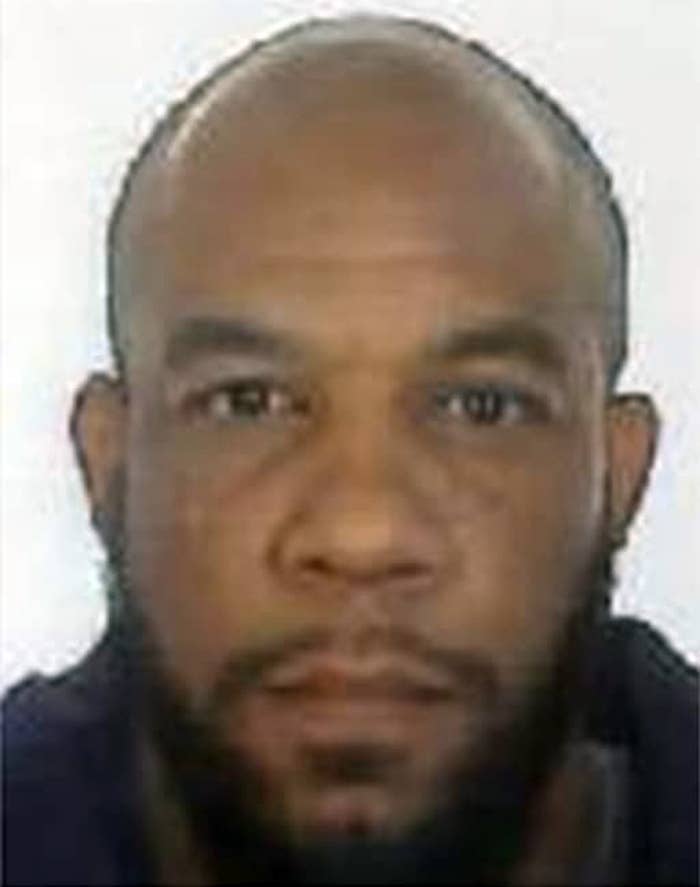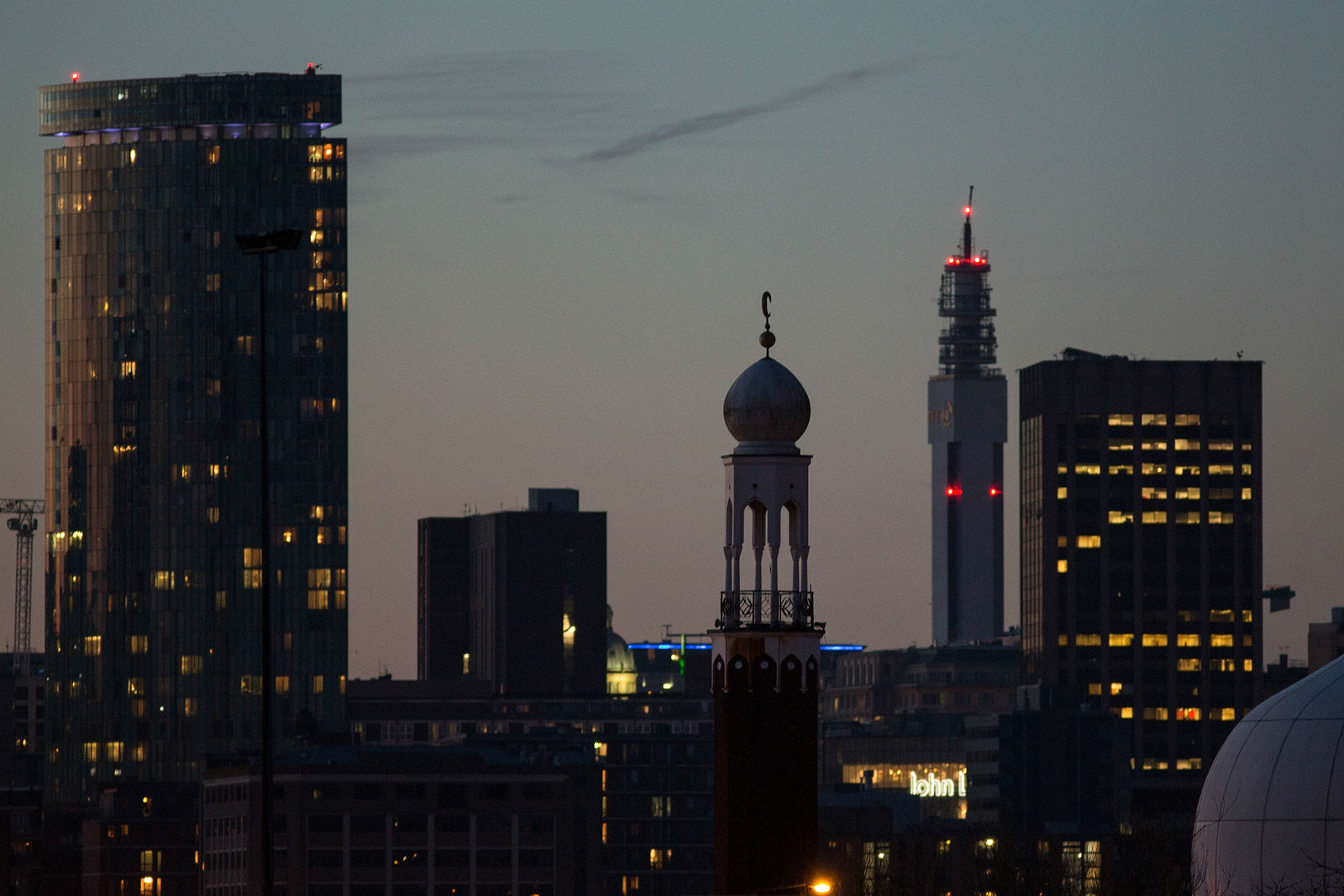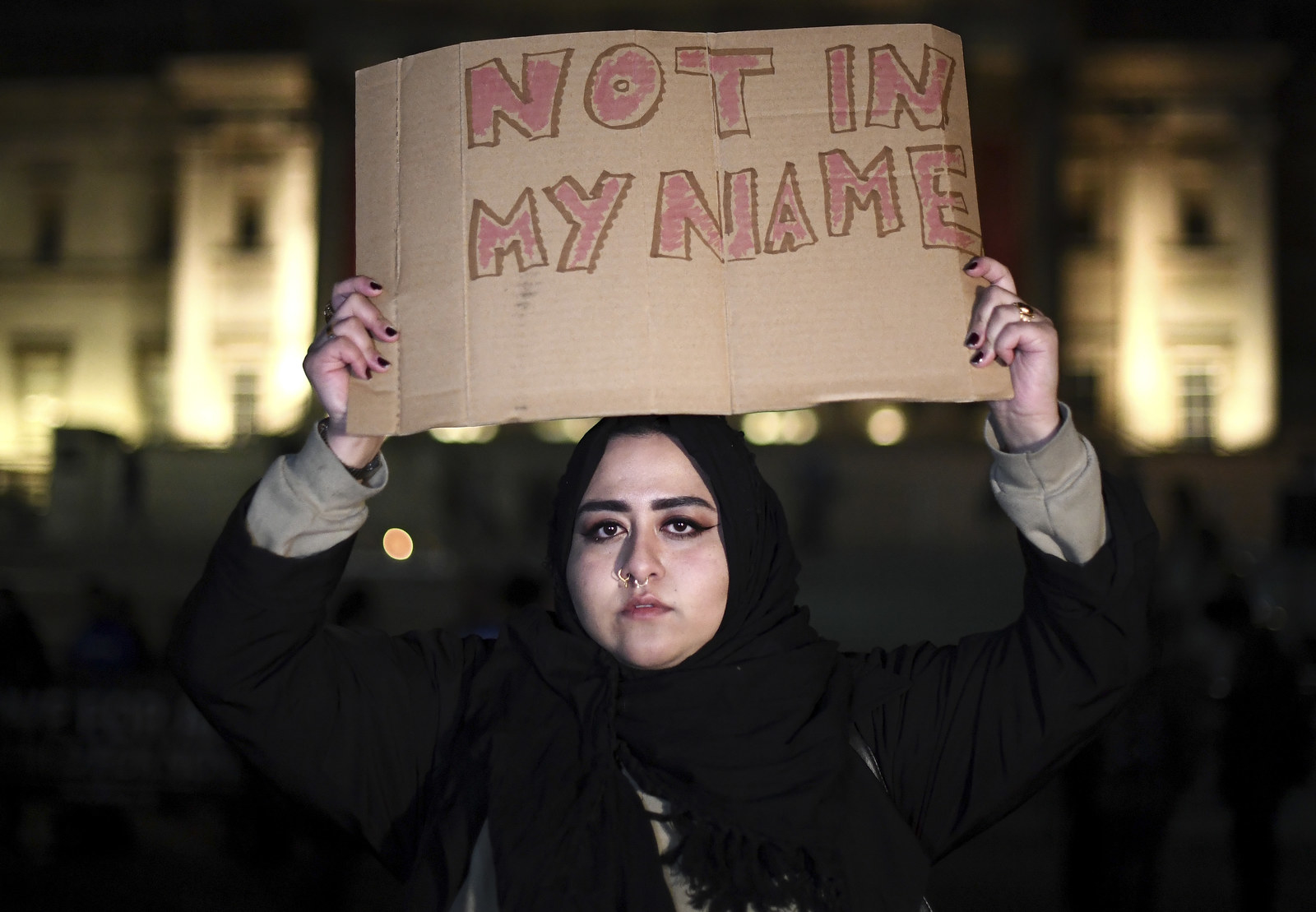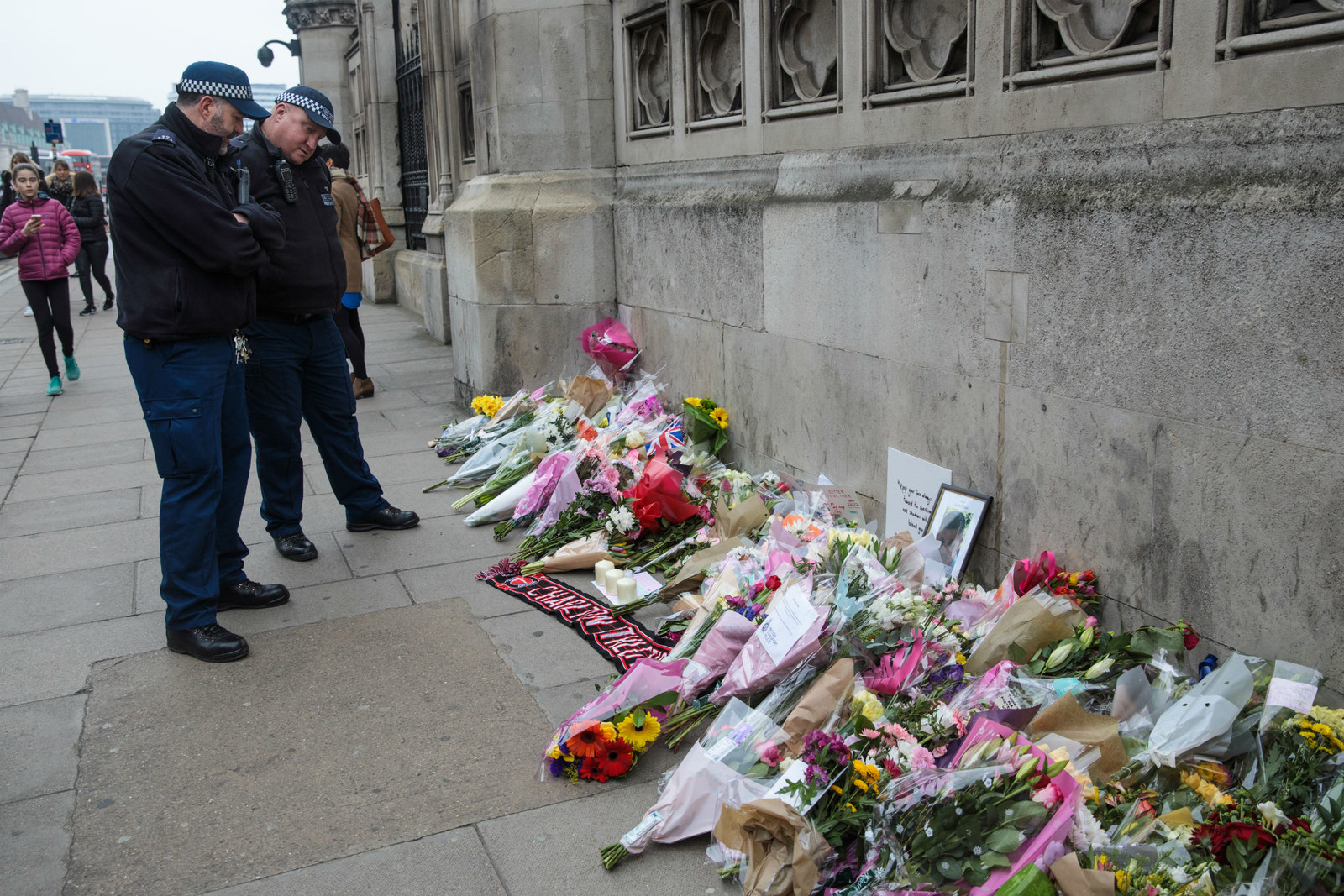
All eyes were on the brown door on Hagley Road in Birmingham. Mohamed, 20, stepped out of his flat a few doors down to find helicopters flying above and police officers hastily tying tape around wheelie bins and a lamppost to make a cordon. Also present were journalists from around the world, cameras, and satellite vans, there in anticipation of something happening at the nondescript flat behind the brown door.
The night before, heavily armed officers had stormed the nondescript second-floor flat, sandwiched between a pizza place and a Persian restaurant, and made arrests. Locals were shocked to discover the raid was in connection with the attack in London, where a man drove a Hyundai 4x4 – hired from a Birmingham depot – over Westminster Bridge and onto the pavement, hitting pedestrians indiscriminately and killing three of them, before getting out and stabbing a police officer outside parliament. The attacker, Khalid Masood, was shot dead by police.
Mohamed – who unlike Masood has lived in the city his whole life – watched from the bus stop beneath his family’s flat as reporters knocked on every single door on the street, asking the same questions to every single shopkeeper and passerby, trying to piece together what happened.
“My family said they heard noises, shouting and screaming. I came from work and I saw all this. I was shocked after I found out it was connected to yesterday’s attack,” he said.

Farha Makanvand, the owner of the Hagley Road flat that was raided, arrived wearing a fedora and long coat – photographers snapping away – and told the assembled journalists he did not know who the tenants were because the flat was let through an agency.
Makanvand, who also owns the restaurant next door, said as a British citizen and British Muslim, he wished to make it clear he was "appalled by this act of violence" in London.
Birmingham is home to diverse Muslim communities, who make up more than 20% of the city's population.
“This is a normal area. There’s mixed people,” Mohamed told BuzzFeed News. But like many Muslims in Birmingham he is concerned about the spotlight his city is now under.
“So how DID Birmingham become the jihadi capital of Britain?” said headline on the Daily Mail website. The Daily Telegraph went with "Terror investigation focuses on Birmingham as report reveals extent of the city's extremist links", while “London attack: Why has Birmingham become such a breeding ground for British-born terror?” was a headline in the Independent this week.
It is only two years since a self-styled “terror expert” was ridiculed for telling Fox News: “In Britain, it’s not just no-go zones, there are actual cities like Birmingham that are totally Muslim where non-Muslims just simply don’t go in.”
Mahmooda Qureshi from Hope Not Hate, an anti-racism campaign group, said she was "feeling uncomfortable that it's a few individuals, yet why do we make such a big deal out of it?”
“It's made out as if this person is hiding amongst the community when a vast majority of the community don't know what's happening or who's who. It's just unfairly put across. It's a typical thing the media does anyway,” she said ahead of the anti-terrorism rally planed for the city centre on Saturday.
On Thursday evening Masood was identified by police as the Westminster attacker, and in the aftermath of properties being raided across Birmingham, community activists and imams held an urgent meeting at Birmingham Central Mosque. About 40 people from different organisations gathered, and concerns of an anti-Muslim backlash that communities may face were voiced.

The Ramadhan Foundation, a Muslim organisation, had called for all mosques to step up security and remain vigilant to any possible reprisal attacks.
Muhammad Afzal, the chairman of Birmingham Central Mosque, called for calm and said in a statement: "We call upon those that may have even a shred of sympathy for the like-minded terrorists to shake their conscience and realise that such acts are the work of evil and not the work of God-fearing people."
Qureshi told BuzzFeed News she feared the far-right would hijack the Westminster attack and "manipulate it for their own intentions, which is to divide the community further, and this is what is more scary for everybody else.”
"We're the ones being harmed more, and this should encourage us to work together in solidarity with the non-Muslim community and take this as an opportunity to teach them what is true Islam.”
As well as the rally, she said community groups were putting together an open letter from the city.
“It's to distance ourselves and that it has got nothing to do with Islam and to state: not in our name,” she said.
Morning, reporting from #Birmingham today. This poster for a public rally tomorrow "not in our name" is circulating… https://t.co/GOW3BHxvz2
Many of the people BuzzFeed News spoke to after the attack talked of the initial shock and then the sinking feeling of hoping the perpetrator did not have a Muslim name.
Saiqa Aslam, a barrister, said: “My first instinct was, Have they named him yet? There’s a paranoia.
“This man was like a ghost figure. Most of us who live here have never come across or spoken to people like this.”
Salma Hamid, a teacher and mother of three, said ahead of Saturday's rally: “I’ve been on hundreds of these kind of events and we're constantly having to prove our worth. Why do it? If we don’t do anything we’re supporting them [terrorists]. You're damned if you do and damned if you don’t.”

Friday prayers at Green Lane mosque – its gothic-style minaret marking the Small Heath skyline – was packed. The mosque was so busy that some of the worshippers who came through the doors – men, women, and children of different backgrounds – had to go to the basement.
They listened intently as Sheikh Abdur-Raheem McCarthy, an American scholar and convert to Islam, said in a sermon delivered in English that Muslims in the UK were "blessed" as they had freedom of faith.
Addressing the attack in London, he said: “We also need to increase our relationship with the local community. And instead of making this divide us, let it bring us closer together and let us stand in solidarity against that which is wrong.
“We are more affected by this as Muslims. This is an attack more against Islam and Muslims. … It could have been a Muslim brother and his kids with his wife walking on that bridge. They could have been killed as well. And the backlash – comes to who? The backlash comes against us. We're the ones being harmed more, and this should encourage us to work together in solidarity with the non-Muslim community and take this as an opportunity to teach them what is true Islam.”
After prayers, the imam read a statement from the Metropolitan police reassuring the communities that there would be extra patrols on the streets, and that the attack was by “a terrorist and someone not of the faith.”
“The question for Muslim communities to reflect on though is 'why are converts falling prey to extremists?'. We need to redouble our efforts to teach orthodox Islam.”
Down the Coventry Road after Friday prayers, groups of friends flocked to restaurants, old men drank tea on chairs outside cafes, and shoppers filled the market stalls. Life went on as normal for most. But at a chicken shop, past the Salafi bookstore and a mural on a street corner with a Muhammad Ali quote, a woman called Sarah told BuzzFeed News that something had changed.
“I went to put change in my electric meter and the shop assistant didn't even look at me. Usually she says 'hi, hello'. Today, she didn’t even look at me.”
That morning at the charity shop she usually visits, she said the assistant, who usually lets her young son choose any toy he likes from the basket, told him to be careful in the shop today.
“I felt nothing. Just because people are ignoring me but they don’t know Islam. That’s their first reaction,” she said.
There is distrust of authorities here. Residents remember how 200 cameras were placed around two of the most densely populated Muslim areas in the city, and the row over the Trojan Horse affair.
For some, it is hard to believe how a terror attack in London has left their city facing intense scrutiny. Others even go as far as to state their belief in wild conspiracy theories that the government allowed Wednesday's attack to happen.
“It was MI5,” said a taxi driver. “If the people at the top wanted to stop it, they could.”
“What can I say? I don’t believe it’s ISIS. I believe it’s the government just because they want to discredit Muslims, Islam, and justify Prevent and put in more laws to oppress Muslims,” Sarah added, finishing her chicken wings, with her niqab flipped over her head.

On Friday there was an impromptu “We Stand Together” vigil in Birmingham city centre outside a bookshop, where anti-racism campaigners gathered to "say no to Islamophobia", a small circle of candles on the floor next to them, flanked by placards and flowers. Sharon, a union officer, said: “Our experience is that Birmingham is a united city. So it’s important to come out and say division is not our experience.”
Ammar Waraich, a lecturer at Birmingham University, said he is worried by increased rhetoric about division: “[The Westminster attack] has clearly nothing to do with segregated communities or women not speaking English (à la David Cameron). It’s one deranged individual with a criminal background who has bought into the false revolutionary tendencies of heretic organisations like ISIS, and has unfortunately been seduced back into criminality through this.”
He added: “The question for Muslim communities to reflect on though is 'why are converts falling prey to extremists?'. We need to redouble our efforts to teach orthodox Islam.”
Two days after the attack, on Friday night at a community centre on the Stratford Road, teenagers discussed Masood's actions and how they would answer difficult questions from journalists about it. It’s a weekly gathering, and this week they were scheduled to talk about prayer. They said how just saying “Islam is a religion of peace” is the biggest cliché, and no one wants to hear that anymore.
They role-played mock interviews, and the message they would want to get across. “He has nothing to do with me, he is a psychopath”, Salahadeen, 16, said, while Saira, another teenager, said: “We’re appalled and in no way agree with what happened.”
Sulayman Ayuub, 18, said his non-Muslim friends have not asked him about the attack. But he added: “I do see the comments online, that 'Islam is the issue', and that really gets to me. It’s my life, it’s what I’ve known, and was born into and chosen to continue... But when people are shouting at you, you can only respond with kindness.”
The Birmingham teenagers said their biggest concern is how people will treat them in the future when they go to university, and the workplace. They delivered their points in a calm manner, but these are young people who have only known a post-9/11 world. Unlike most other teenagers, they are under intense scrutiny for events they feel have nothing to do with them.
